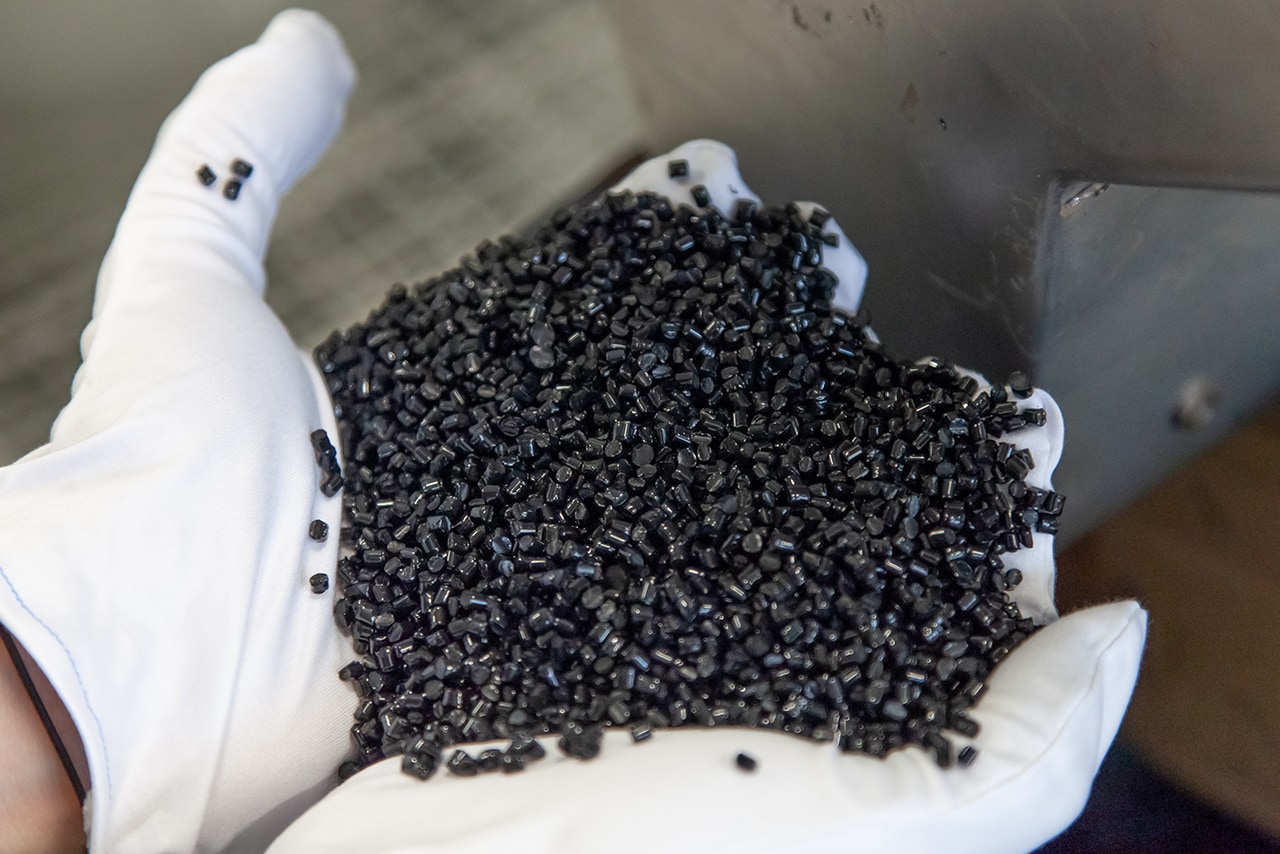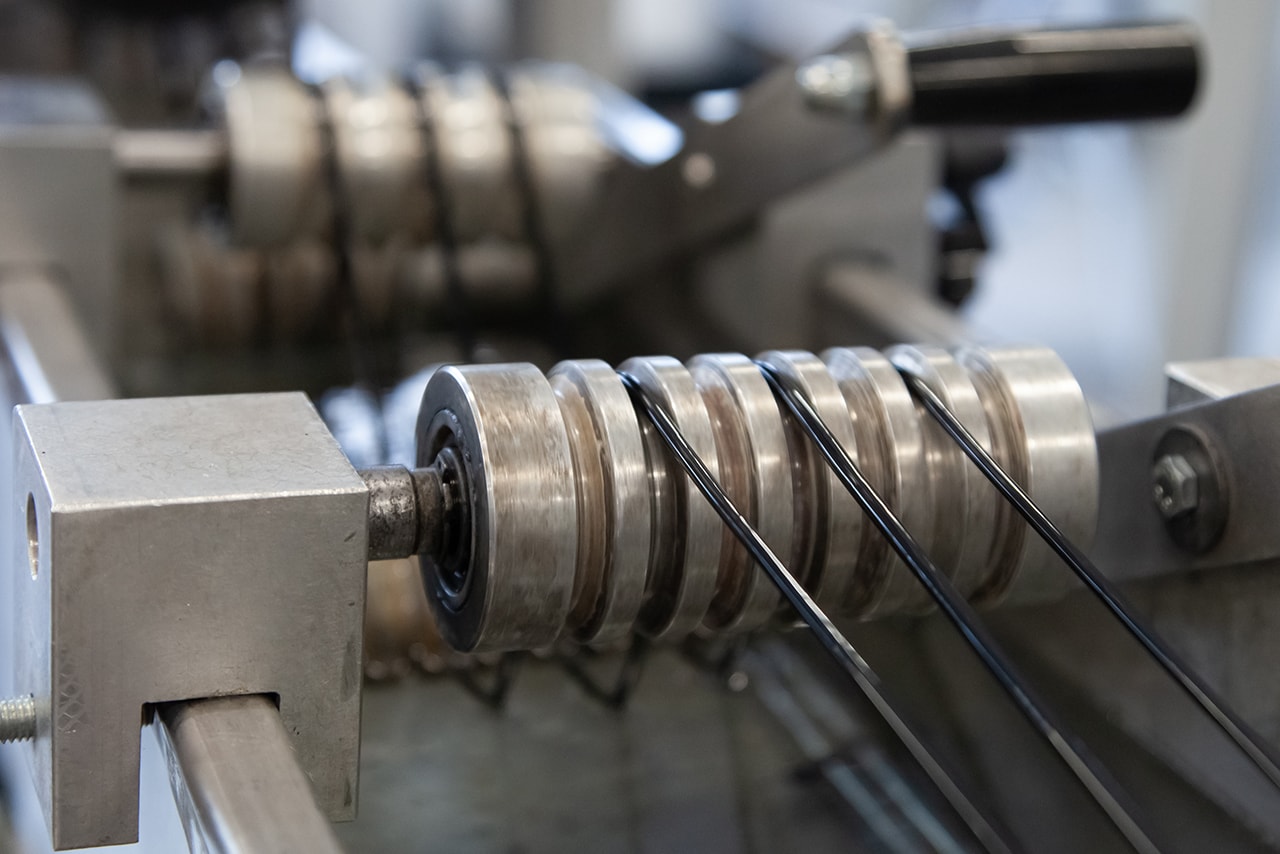In the Group’s quest to offer high-quality products while raising awareness about the circular economy in support of the planet, EssilorLuxottica is moving its fossil-based nylon to renewable and recycled ones as a sustainable solution.
Each year, approximately 8 million metric tons of plastic waste make their way into the world's oceans. As part of 'Eyes on the Planet', the Group’s sustainability program, EssilorLuxottica is taking steps to reduce its environmental footprint and put an end to waste following the 4Rs: “Research-Reduce-Reuse-Recycle.” With a dedicated pillar called “Eyes on Circularity,” the goal is to create a circular process that makes it possible to recycle waste materials into the Group’s production cycle - in order to limit and reduce plastic waste. One example is through the use of recycled nylon.
Nylon - a brief background
Nylon is a type of plastic derived from crude oil. It is a polyamide, made from reacting carbon-based chemicals found in coal and petroleum in a high-pressure, heated environment. It is transparent, resistant to heat and chemicals, and has a low absorbency rate. Due to these properties, nylon is used widely in many industries including agriculture, construction, clothing, and food processing. A particular variation of nylon is also used in the eyewear sector for the production of plastic frames. For instance, a process called injection molding is used, where nylon is melted and injected into a mold to obtain the shape of the glasses. This is a fast process which generates a low amount of scrap (‘sprues’).
Turning waste into endless possibilities
Waste management is a crucial part of EssilorLuxottica’s commitment to reducing its environmental footprint. The Group uses approximately 800-900 tons of nylon a year with only a few tons of waste. Nonetheless, three years ago, its R&D teams in Italy began looking for solutions and into how the ‘sprues’ could be recycled. After two years of testing, they found that nylon could indeed be recycled and be reused up to seven times safely, with no compromise on quality, and an in-house process in Agordo, Italy, was launched to recycle and compound nylon plastic scraps derived from manufacturing of frames. Injection manufacturing is essentially where nylon is melted and injected into a mold to obtain the shape of the glasses and is a fast process which generates a low amount of scrap (‘sprues’).. The sprues are put into a granulator that grinds them into small pieces; then the material is transformed by a process called extrusion. During this process, the material is melted and extruded into “spaghetti '' shaped pieces, before they are finally cut into granules. The black granules which are derived can be reused and recycled several times, while maintaining their original properties. Today, at EssilorLuxottica,. In the first quarter of this year, the Company was able to recycle around six tons of nylon only in Agordo plant.
The Agordo plant in Italy, where the internal recycling process takes place has received International Sustainability & Carbon Certification (ISCC) for the Circular Economy applied through the mass balance approach. This is continuously monitored by the Company (from controlling, to manufacturing and engineering) and a third-party organization verifies its process on a yearly basis based on stringent requirements. The application of this standard ensures the traceability of the material through all the production phases: from waste collection to the injection molding process and that the recycled granule maintains the same high standards of quality and performance as the original.
In 2021, EssilorLuxottica launched the first R-EA (Recycled Emporio Armani) product made with 100% recycled nylon - Following the Armani experience and thanks to the ISCC certification mass balance approach, the Company was able to expand the use of recycled nylon with other brands. Recycled nylon was used also for the Tory Burch ‘Recycled Eyewear Collection’
The future looks bright with recyclable nylon
The next step is to extend the ISCC certification scheme on the Company’s recycling capabilities to the plants in other regions, China (Tristar) and Brazil (Campinas) with plans to explore new solutions in order to scale up the recycling. So far the recycled plastic produced has been black (as it is easy to make black from several colored mixed plastics), however the Company is currently experimenting with producing other colors and initial results have been promising.

